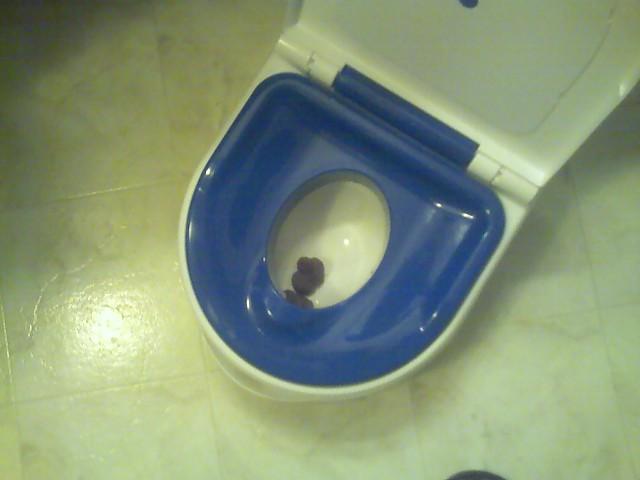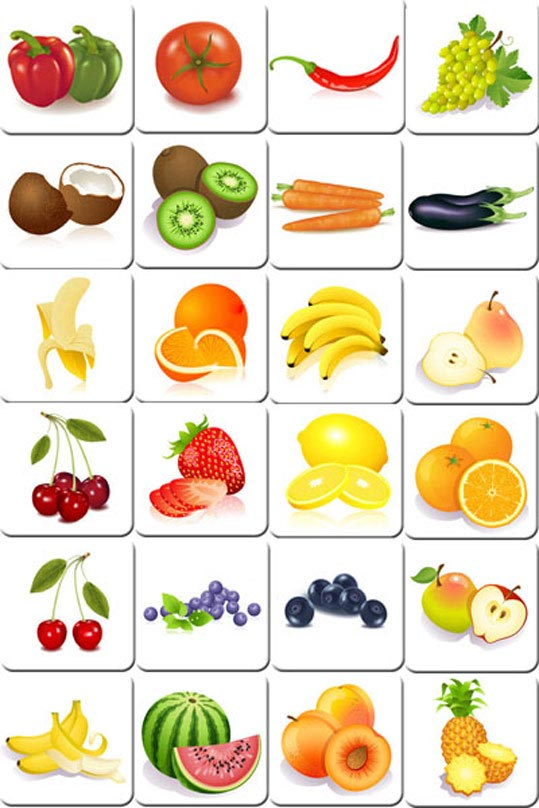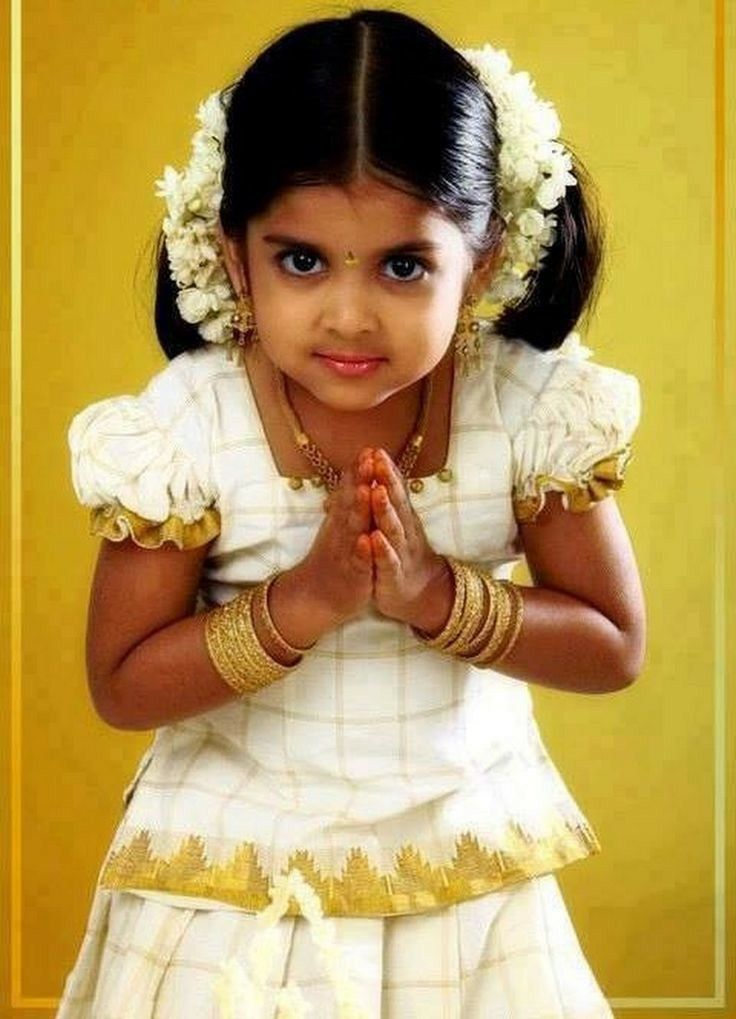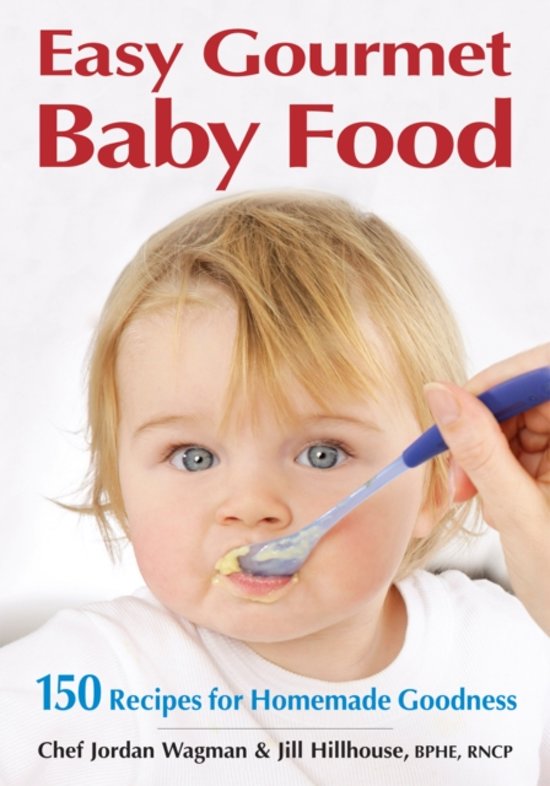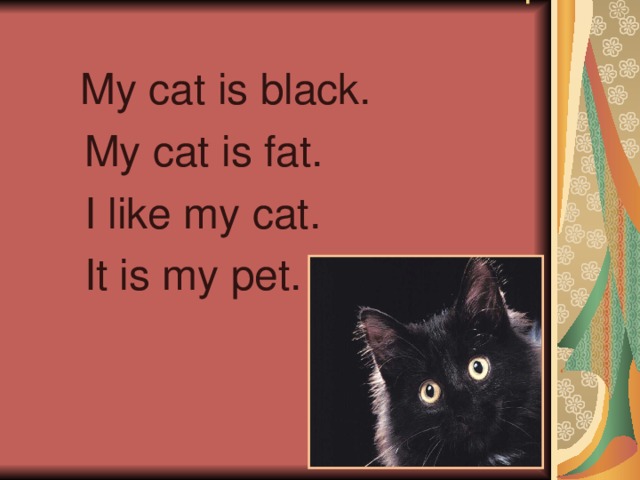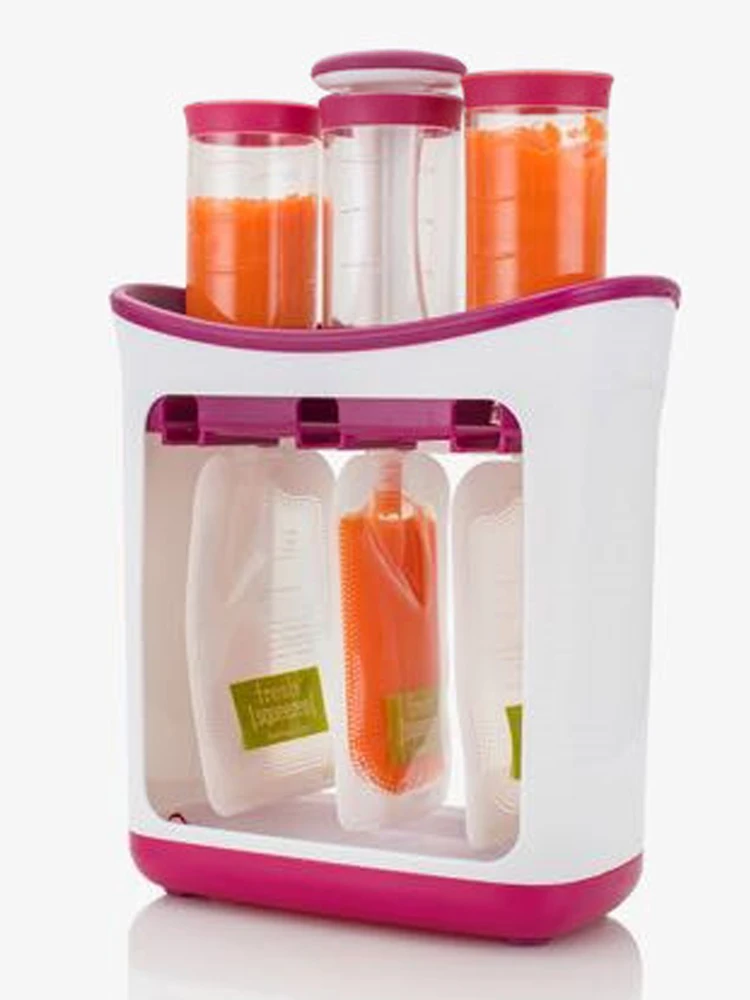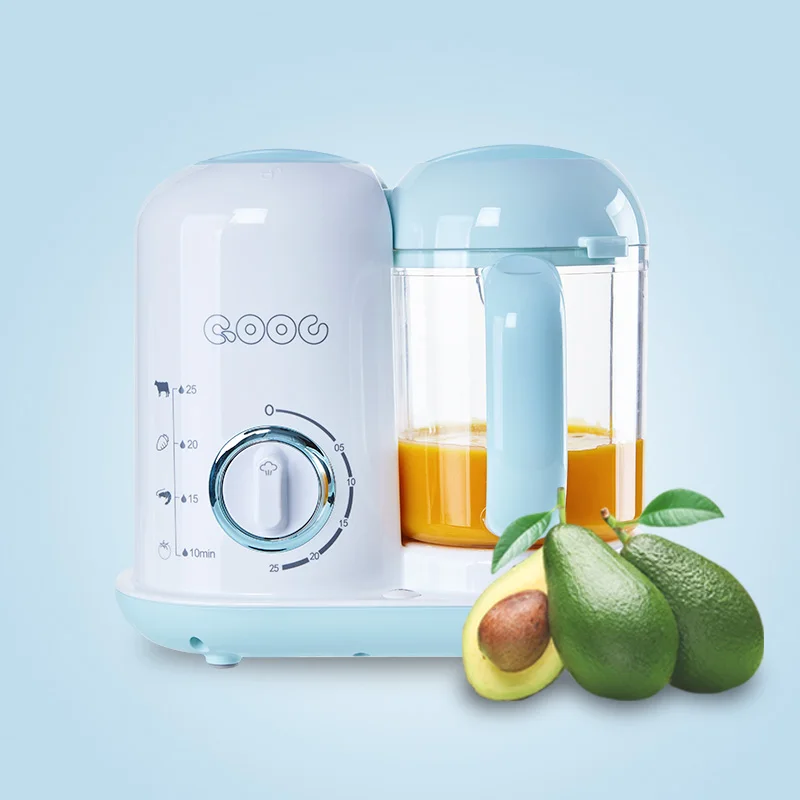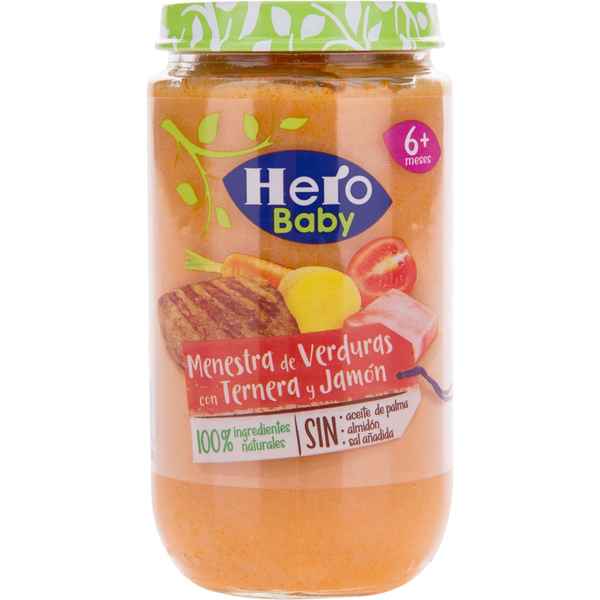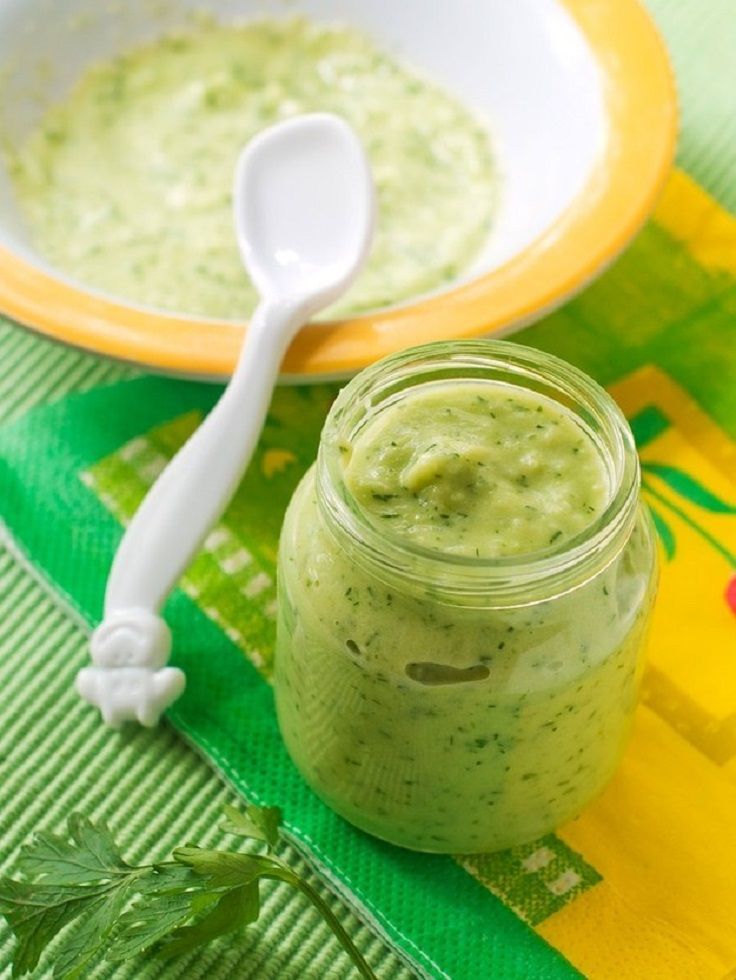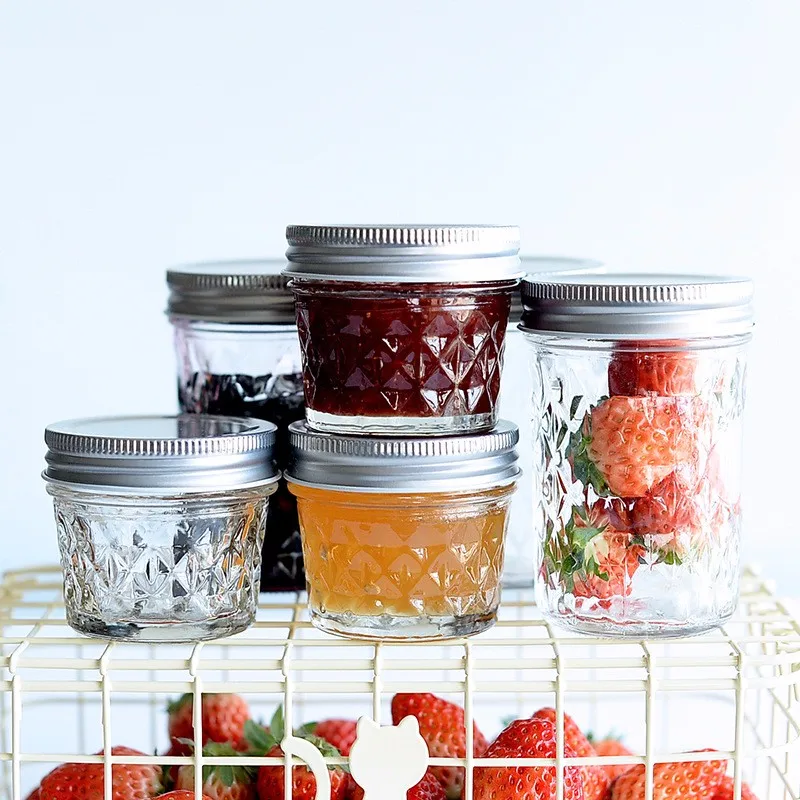Baby does potty after every feed
How often should a newborn poop?
Yes, it's normal if your baby is pooping after every single feeding. You’ll quickly discover that when it comes to newborns, poop frequency comes in a wide range of normal.
Some babies are just more productive poopers than others. It’s perfectly okay to end every feeding with a diaper change, or to not see a single bowel movement for a few days. Your baby pooping a lot probably isn’t an issue, unless you’re changing three or more extra-watery diapers a day. In that case, it could be diarrhea, which is something to let your baby's doctor know about.
How often should a newborn poop?
It varies. Poop habits differ a lot from baby to baby. The average frequency is one or more bowel movements daily. But some newborns produce five or more dirty diapers a day in their first 2 weeks of life, while others go for days without pooping.
It’s not unusual for newborns to poop a lot, since they spend most of their waking hours eating. In general, breastfed babies poop more than formula-fed ones. In fact, your baby may poop while nursing and again once they’re done – which is why you may want to wait a few minutes after you're finished breastfeeding before swooping in with a clean diaper.
Because breastfed poops contain more liquid, they’ll look more watery than the stools of formula-fed babies. (See real photos of the different kinds of baby poop here.)
When a breastfed newborn poops after every feeding during the first few weeks, take it as a good sign – it means they’re getting plenty of milk. Even though formula-fed babies may have less frequent bowel movements than breastfed babies, it's normal for them to poop after every feeding as well.
The frequency of your baby's bowel movements may start to slow down by the time they're around 6 weeks old, but some babies continue their pattern of pooping after every feeding for much longer. (It’s not uncommon for some 1-year-olds to poop five times a day.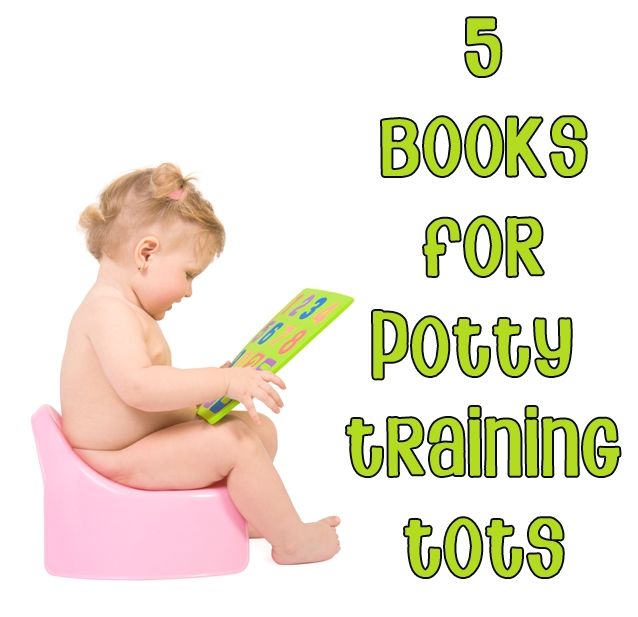 )
)
How long can a baby go without pooping?
If your baby hasn’t had a bowel movement in a few days, there’s no need to immediately fear the big “C” (aka, constipation). Babies can go days, or even a week, without producing a dirty diaper. A breastfed baby can go even longer – as long as two weeks without pooping if they haven’t started on solid foods yet.
Advertisement | page continues below
If the bowel movements your baby does make are soft, constipation probably isn’t an issue. Exclusively breastfed babies rarely get constipated because breastmilk is an economical food. Your baby gets just what they need, with little waste leftover to poop out.
True constipation in babies typically happens from a change in diet, a lack of fluids, or an illness. The telltale sign is hard, dry stools. If your baby is constipated, they may get extra fussy and look like they’re straining uncomfortably when they try to go.
Should I ever be worried about my baby pooping a lot?
Generally, if your baby's bowel movements are fairly consistent and they’re acting like their usual self, frequent poops aren't a cause for concern.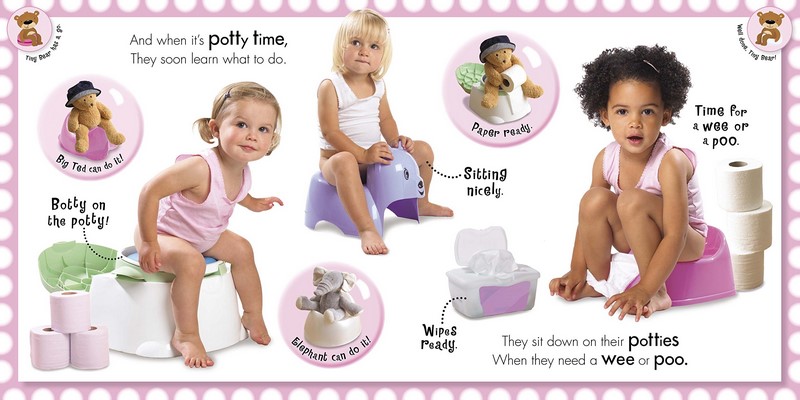 However, if there's a sudden change in your baby's pooping pattern and their stool becomes watery, check with their doctor. Very watery bowel movements could be a sign of an infection.
However, if there's a sudden change in your baby's pooping pattern and their stool becomes watery, check with their doctor. Very watery bowel movements could be a sign of an infection.
Call the doctor if your baby has any of these other poop-related symptoms:
- Pulling their legs up to their stomach (a sign that their tummy hurts)
- Straining to have a bowel movement
- Poop that looks like small, hard pebbles or is extra watery
- Irritability
- A swollen belly
- Blood in their poop
If my baby is pooping a lot, are they more prone to diaper rash?
Babies who have frequent bowel movements can be more susceptible to diaper rash. Constant contact with stool can irritate the sensitive skin on their bottom.
The best way to prevent diaper rash is to keep your baby’s bottom clean and dry. To start, change their diapers more often. Wash their skin clean with warm water during each change.
You may want to coat the area with a diaper rash cream or a product containing zinc oxide or petroleum jelly to create a barrier.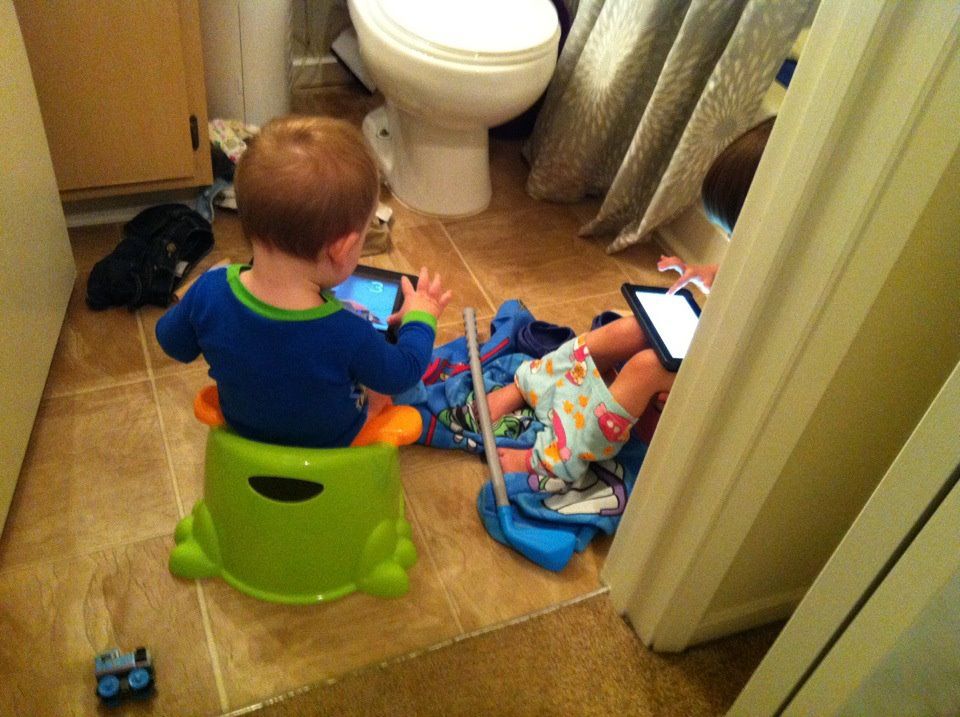 And instead of putting on a new diaper right away, let your baby go diaper-less for a little while each day so their bottom can fully air dry. If these tips don’t relieve the diaper rash, give your baby's doctor a call.
And instead of putting on a new diaper right away, let your baby go diaper-less for a little while each day so their bottom can fully air dry. If these tips don’t relieve the diaper rash, give your baby's doctor a call.
Read more:
A new parent's guide to baby poop
Age-by-age guide to feeding your baby
How much formula newborns and babies need
Why Does My Baby Poop Every Time He Eats?
As a new mom, you may be concerned and anxious to see your baby poop every time after feeding them. You may be wondering if it is normal for your baby to poop after every feed or if your baby poops too much.
Just relax because it’s normal for babies to poop after every feed. Pooping after every meal is actually a good sign that your baby is getting plenty of milk. To know more about this keep reading.
In This Article
- Is it Normal for My Baby to Poop After Every Feed?
- Do Breastfed Babies Poop More?
- How Many Times a Day do Formula Fed Babies Poop?
- How Often Does a Baby Poop After Starting Solids?
- Frequent Pooping and Diaper Rash in Babies
- When is Frequent Pooping in Babies Not Normal?
- FAQ’s
Is it Normal for My Baby to Poop After Every Feed?
Yes, it is perfectly normal for babies to poop after every feeding session.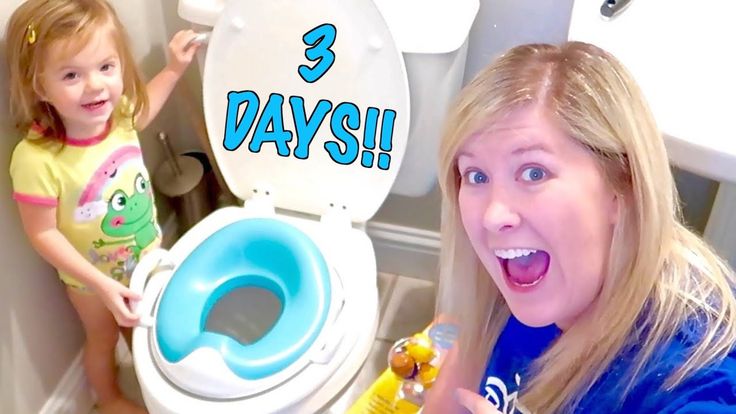 Some babies poop after every feed and sometimes a little later. In fact, pooping after every feed indicates that your baby is in good health and getting enough milk. The frequency of stools can slow down after 3 to 6 weeks of birth as your baby’s stomach grows and they settle into a routine.
Some babies poop after every feed and sometimes a little later. In fact, pooping after every feed indicates that your baby is in good health and getting enough milk. The frequency of stools can slow down after 3 to 6 weeks of birth as your baby’s stomach grows and they settle into a routine.
But then some babies still continue pooping after every feed for as long as one year. Every baby is different. So, if your baby’s bowel movements are fairly consistent and they are their usual cheerful self, there is nothing to be concerned about frequent poops.
Do Breastfed Babies Poop More?
Pooping after every feed is common among breastfed babies. They poop more frequently than formula-fed babies. This is because breast milk contains immunoglobulins. These are substances produced by the body’s immune system. They also work as a natural laxative and are very helpful for clearing meconium in the initial days.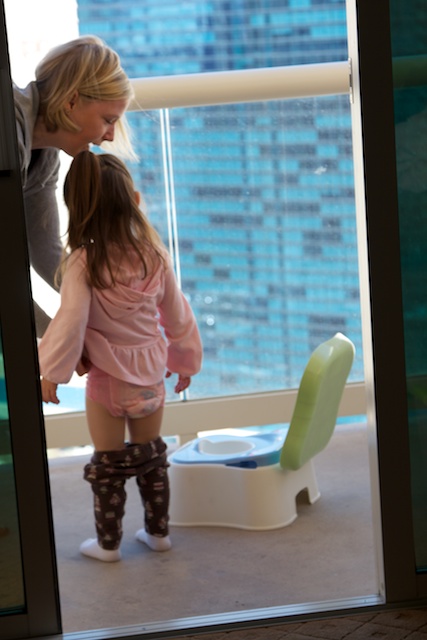 They also prevent constipation in breastfed babies.
They also prevent constipation in breastfed babies.
It’s quite normal for some babies to have fewer bowel movements after 6 weeks. There may be cases where your baby may be pooping only once a week. But there is nothing to be alarmed about unless their stools are hard or are constipated. Your baby is getting the right balance of foremilk and hindmilk if they produce soft and easy-to-pass stools.
How Many Times a Day do Formula Fed Babies Poop?
Formula-fed babies generally pass fewer stools than breastfed babies. This is for the simple reason that formula can be harder to digest, and, as a result, it takes longer to pass through your baby’s system. But there may be instances where formula-fed babies will be pooping after every feed, especially during their early weeks.
How many times a formula-fed baby poops in a day differs from baby to baby and this also changes as your baby grows.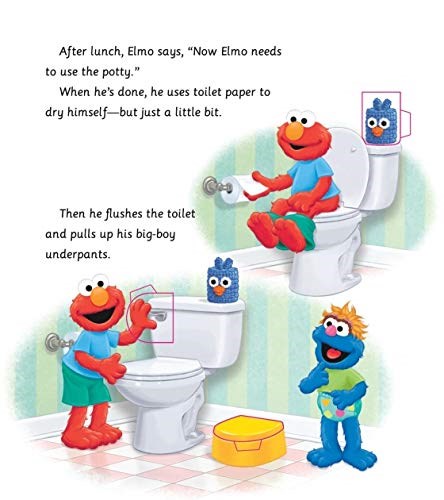 For some formula-fed babies, during the first month, three bowel movements are considered normal while for others the frequency can go up to 5 poops a day.
For some formula-fed babies, during the first month, three bowel movements are considered normal while for others the frequency can go up to 5 poops a day.
Between 1-2 months, the frequency of bowel movements changes in babies. For some babies, passing stool once every two days is also considered normal. Just keep in mind that as long as the poop has the consistency of peanut butter, there is nothing to worry about.
How Often Does a Baby Poop After Starting Solids?
Once your baby starts solids around six months, the frequency of his poop will be affected. The frequency, color, and smell of the poop will change once your baby is on solid feed. Your baby may poop, several times in a day or he may go without a bowel movement for several days.
We can attribute this to their immature digestive system.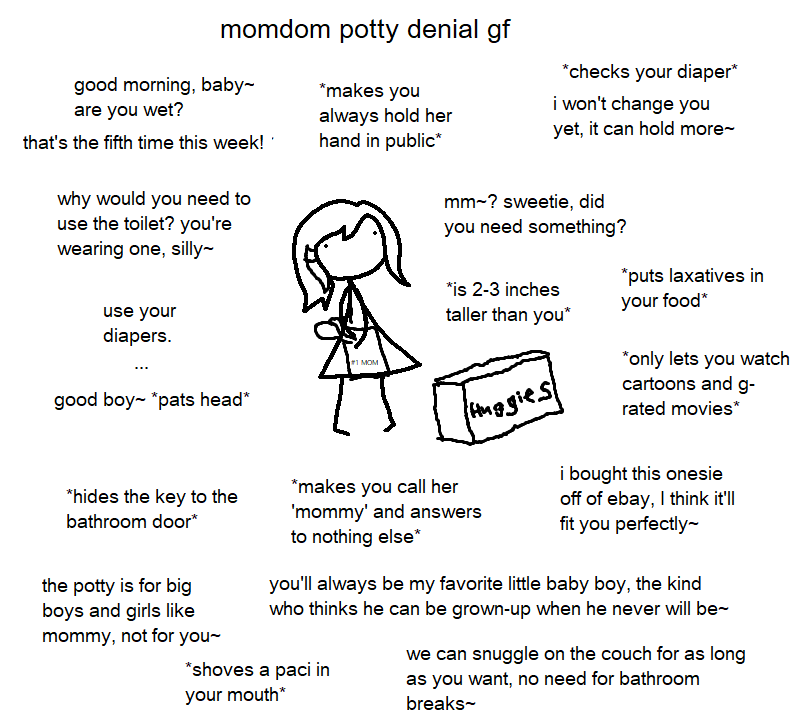 When your baby’s system is matured enough to process solid food efficiently, you will notice that the bowel movement of your baby returns to normalcy once again.
When your baby’s system is matured enough to process solid food efficiently, you will notice that the bowel movement of your baby returns to normalcy once again.
Frequent Pooping and Diaper Rash in Babies
Babies who pass frequent stools after every feed are more prone to diaper rash. Use a diaper rash cream in case your baby develops a rash and the area has turned red. Also, try and let your baby go without a diaper for a little time each day so that their bottom dries fully. All this will help the diaper rash to get better, but if nothing works, do consult your baby’s doctor.
When is Frequent Pooping in Babies Not Normal?
As we mentioned earlier that if your baby’s poops are soft and easy to pass, there is nothing to worry even if your baby is pooping after every feed. However, frequent pooping can also be a sign of diarrhea. Your baby may have diarrhea if:
- His poops are runny or liquid in consistency.
- Your baby is pooping more often than usual and passing large amounts of stool.

- Their poops are explosive and spurting out of his bottom or running down his leg.
In such cases, you will also need to figure out the cause of diarrhea. Now, there can be various causes of diarrhea in babies:
- Digestive tract infection
- Allergic reaction to a food
- Intake of too many fruits or juices
- Reaction to a medicine
Diarrhea should go away without treatment within a period of 24 hours. However, if it lasts longer than that and is accompanied by fever, then it is advisable to check with your baby’s doctor to avoid dehydration in your baby. In the meantime, keep feeding your baby with milk and food and keep a close eye for any signs of dehydration in your baby.
Did your baby also poop every time he ate? How often did your baby have a bowel movement? Do share your experience in the comments section below.
FAQ’s
1. Do all Babies Poop During Breastfeeding?
Many babies do. Their bowels are relaxed when their stomachs are full.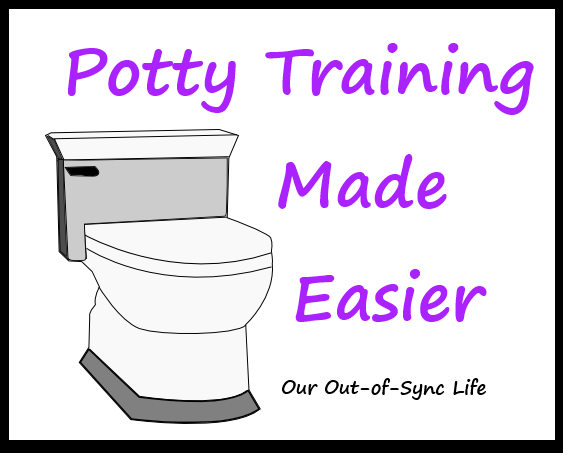 The digestive system is getting into a routine.
The digestive system is getting into a routine.
2. Does Breast Milk Cause More Poop Than Formula?
Yes, it does. Breast milk contains natural laxatives to help remove the meconium. This is very common and nothing to worry about.
3. Do Formula Fed Babies Struggle to Poop?
Formula milk can be hard to digest for some babies. Some babies poop freely. It depends on how each baby digests the formula.
4. Can Babies Have Diarrhea Due to Milk?
Yes, to an extent. However, if your baby is pooping too frequently or is very watery, consult your doctor. This could indicate a health issue.
Potty training
When to start
The normal development of young children is largely determined by proper care for them. The process of potty training is an important stage in the development and maturation of the child, as well as in the formation of his relationship with his parents.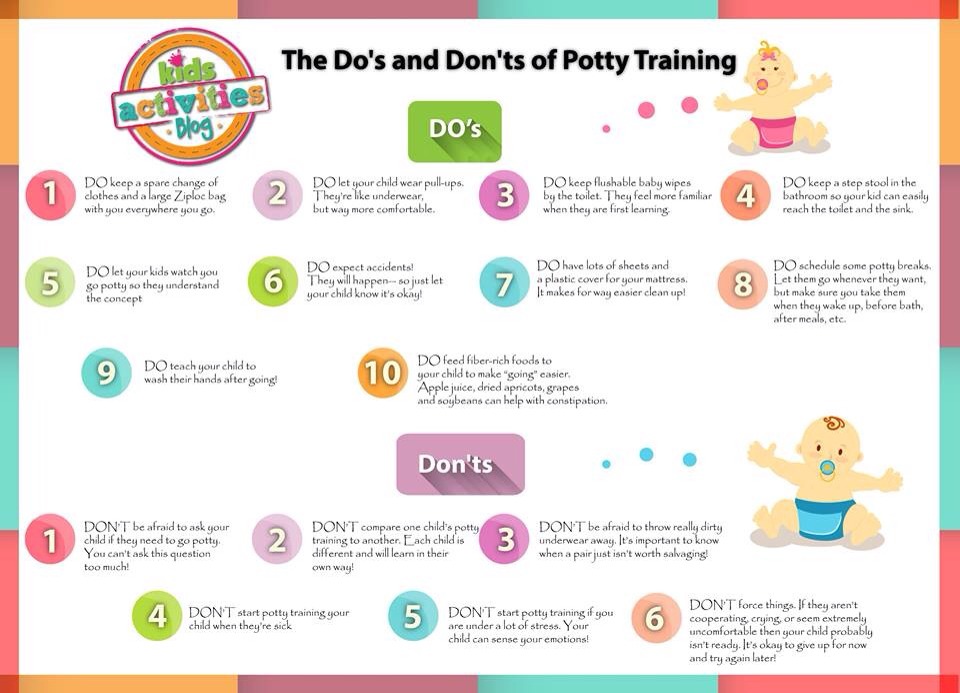 Many parents tend to become overly anxious when their child does not develop according to their expectations.
Many parents tend to become overly anxious when their child does not develop according to their expectations.
The methods of "early potty training" practiced until recently (during the first year of life) should be considered outdated and non-physiological, since their use does not take into account the degree of maturity of the muscles and nervous system of the child (in particular, the innervation of the bladder and intestines). As a result, learning becomes a long and unproductive process. In addition, when using them, children may experience negative reactions (since education is built on pressure from parents) and somato-neurological dysfunctions, which subsequently is fraught with problems such as constipation, urinary / fecal incontinence, numerous neurotic reactions (including logoneurosis, tics, etc.). .), and upon reaching a certain age - enuresis, overactive bladder and persistent encopresis. Forced potty training at any age can be stressful for both the child and the parent.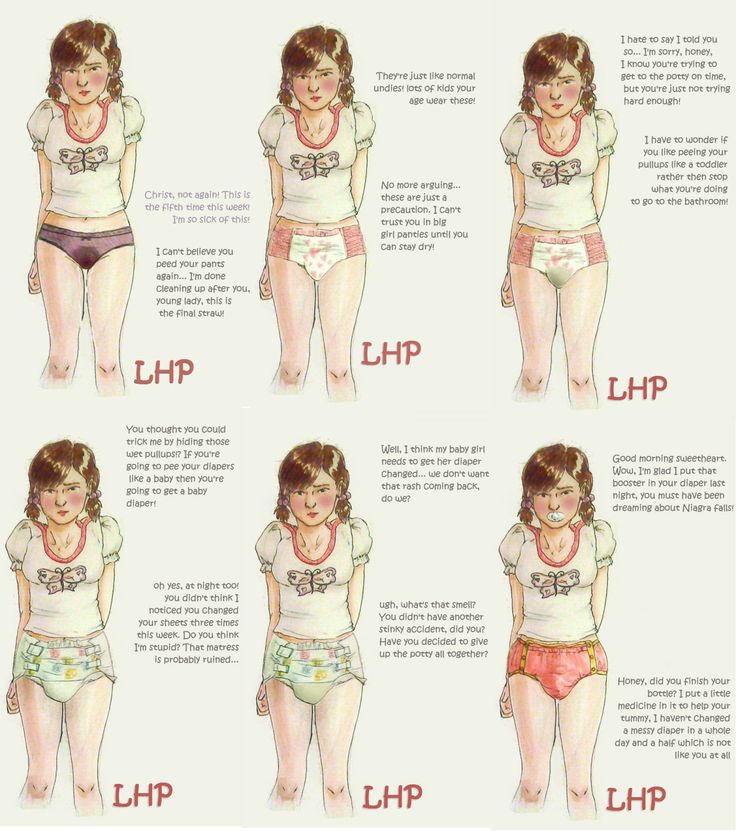 The described stress becomes even more pronounced if the child is not able to understand or interpret the command received. Attempts to impose on a child such methods based on adult dominance inevitably lead to a delay in the learning process and low efficiency.
The described stress becomes even more pronounced if the child is not able to understand or interpret the command received. Attempts to impose on a child such methods based on adult dominance inevitably lead to a delay in the learning process and low efficiency.
The described methods of early potty training are reflex, that is, based on the development of a conditioned reflex, and not a conscious skill. In the process of training, parents determine the signals and "body language" of the child before urination or defecation, similar to how pets are toilet trained. Such techniques are not based on real learning, but on the development of a reflex, and therefore are ineffective. The success of the process depends on whether the adult can recognize the need or desire of the child to go to the toilet (there are no basic elements of learning, and the process is not associative). The "skill" acquired by the child is of a non-permanent nature and can be lost in any stressful situation (for example, illness or moving from an apartment, a quarrel between parents) or other adverse circumstances. Therefore, attempts to force a child to potty train before he reaches physical readiness and / or increased intensity of training in no way accelerate or bring the desired result closer. Successful potty training is the development of a cognitive (conscious) skill or ability that should be centered around the child; it should be positive and entertaining. It is important to remember that an acquired reflex is easily lost if it is not a learned pattern of behavior.
Therefore, attempts to force a child to potty train before he reaches physical readiness and / or increased intensity of training in no way accelerate or bring the desired result closer. Successful potty training is the development of a cognitive (conscious) skill or ability that should be centered around the child; it should be positive and entertaining. It is important to remember that an acquired reflex is easily lost if it is not a learned pattern of behavior.
To make the process of potty training quick and easy, parents should be informed about the “child-centered” method.
The “child-centered” or physiological toilet training method is a method that takes into account the degree of maturity of the central nervous system. It is the central nervous system that provides innervation to the muscles, organs of the genitourinary system and the gastrointestinal tract of children. This approach helps parents to understand the child correctly and direct the process of potty training in accordance with the level of development of the child. According to this method, the child becomes the main figure, his self-confidence and self-esteem increase. Training, according to this technique, is designed not only to develop a reflex in a child, but to accelerate the assimilation of relevant information or skills, in the case of potty training, the child's acquaintance with his own body. The physiological model takes into account three main components of child development: physiological maturity (strengthening the muscles of the sphincter of the bladder and intestines, the necessary development of the central nervous system), psychological and emotional readiness (understanding and desire to follow instructions). According to the literature, a healthy child reaches the required physiological maturity at an average age of 18 to 24 months (American Academy of Pediatrics, 2003).
Up
How a baby's body works
When potty training a child, you should know that the success of training depends entirely on how ready his body is for it.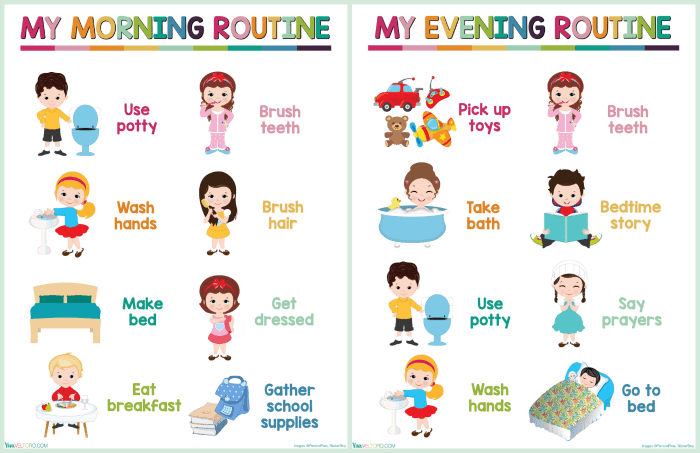 It has been proven that the child's body is ready for potty training on average no earlier than 18 months. A child can consciously go to the toilet only when he develops a connection between the nervous system and muscles. This connection is finally formed around the age of 18 months and consists of numerous neural structures that connect the spinal cord with the bladder and intestines. When the bladder or intestines are full, a signal is transmitted along the nerves to the spinal cord, from there to the brain, and the baby understands that he wants to pee or poop. Only then can the child consciously sit on the potty and do their thing. Knowing this, one can come to very significant conclusions, which, however, are quite obvious. The sooner you start the process of potty training, the more effort it will require from you. Potty training is more successful, painless and easier, the higher the level of physiological development of the child. And if you start training when the child's body is fully prepared for it, you and your child will succeed much faster and easier.
It has been proven that the child's body is ready for potty training on average no earlier than 18 months. A child can consciously go to the toilet only when he develops a connection between the nervous system and muscles. This connection is finally formed around the age of 18 months and consists of numerous neural structures that connect the spinal cord with the bladder and intestines. When the bladder or intestines are full, a signal is transmitted along the nerves to the spinal cord, from there to the brain, and the baby understands that he wants to pee or poop. Only then can the child consciously sit on the potty and do their thing. Knowing this, one can come to very significant conclusions, which, however, are quite obvious. The sooner you start the process of potty training, the more effort it will require from you. Potty training is more successful, painless and easier, the higher the level of physiological development of the child. And if you start training when the child's body is fully prepared for it, you and your child will succeed much faster and easier.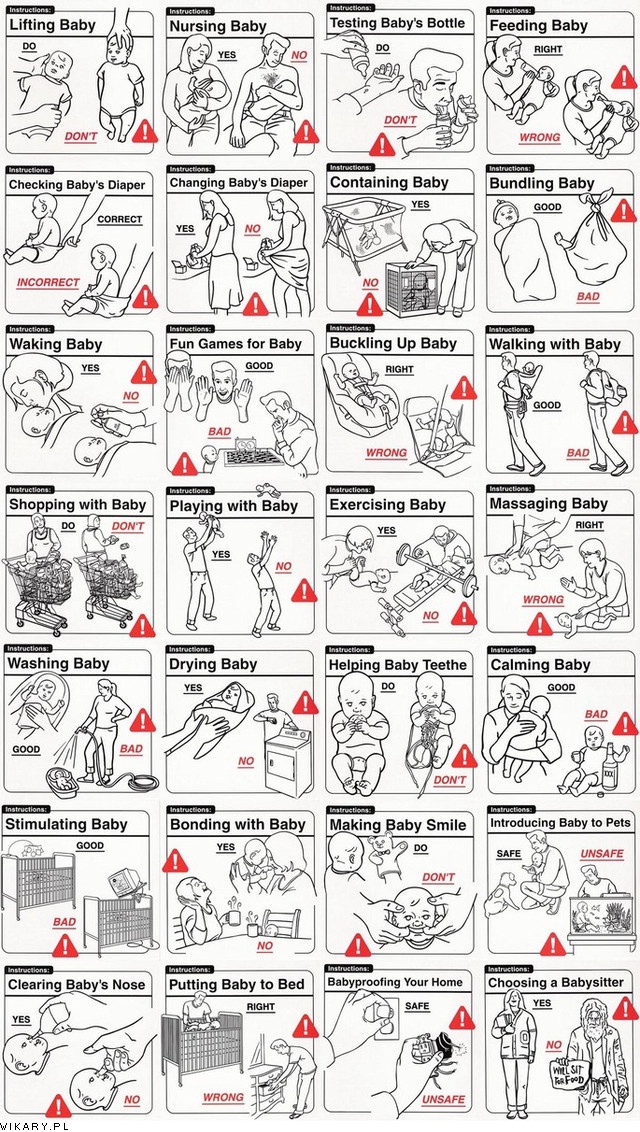
Up
Early successes
True, many patient and active parents manage to achieve excellent results already in the first year of life. Quite often, proud statements are made that a child at 10, 9, 8, even at 7 months old, pees on the “pee-pee” command, and poops only after “ah”. And there is absolutely nothing surprising in this. It is not difficult to achieve the appearance of a conditioned reflex by repeated beeping and aakan, only this reflex is not quite what we need. Why? Yes, because this is the connection between the process of emptying the bladder and the sound "wee-wee." And if this sound is pronounced often and for a long time, and if anyway you are not left alone until you pee, then this connection will be established sooner or later. But the chain should be different: not “wee-wee” - filling the bladder - urination, but filling the bladder - a pot - urination. That is, the physiological process (filling the bubble), and not the sound stimulus (“pee-pee”), should become the motive for the potty.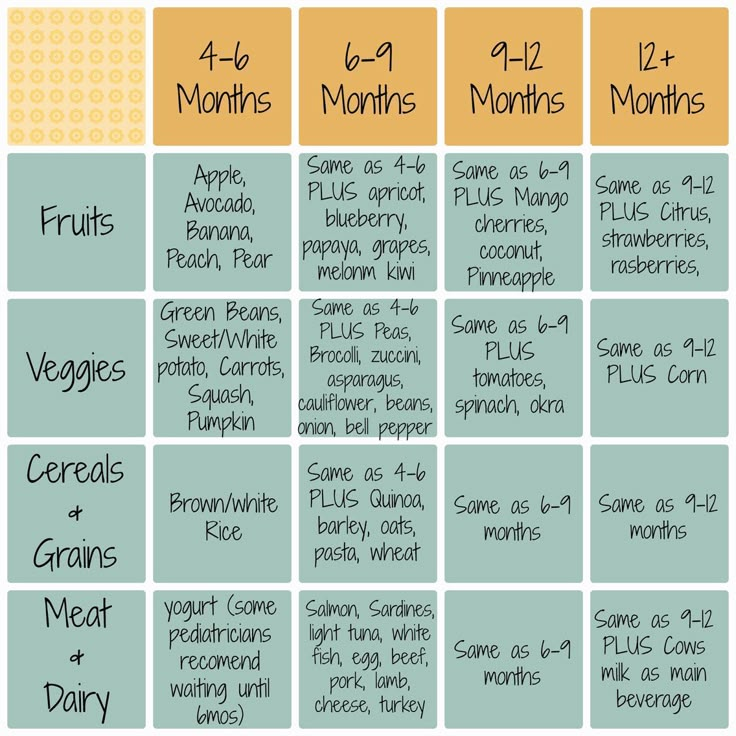
| Potty training around 18 months of age | Potty training at an earlier age |
| Child consciously controls all processes | Process based entirely on reflexes |
| Acquired skills are not lost | With any changes in a child's life, he quickly forgets everything he has learned |
| Teaching is faster and easier | Teaching is longer and harder for the child |
| The child enjoys his successes and the process itself | Frequent misses, more stress for the child |
Payback for early success comes in the second year of life. A supposedly capable and developed child, who has been sitting on the potty since the age of 9 months, suddenly, for some “incomprehensible” reasons, stops doing this, and actively fights for his freedom with anxious relatives. And the considerations are very understandable - the time is coming for the formation of that very normal, natural control over secretions, which we have already talked about. The bladder is empty, and they are here climbing with their "wee-wee" ... No matter how "amazing success" you have achieved, but before the child is ready for potty training (and this is approximately 18 months), these successes will be temporary, and misses are frequent. And this must be treated very philosophically. There is absolutely nothing wrong with the fact that you will be able to introduce your child to such an interesting thing as a potty. But this acquaintance, at least from the point of view of medical science, will be superficial, and the skills developed are not stable.
A supposedly capable and developed child, who has been sitting on the potty since the age of 9 months, suddenly, for some “incomprehensible” reasons, stops doing this, and actively fights for his freedom with anxious relatives. And the considerations are very understandable - the time is coming for the formation of that very normal, natural control over secretions, which we have already talked about. The bladder is empty, and they are here climbing with their "wee-wee" ... No matter how "amazing success" you have achieved, but before the child is ready for potty training (and this is approximately 18 months), these successes will be temporary, and misses are frequent. And this must be treated very philosophically. There is absolutely nothing wrong with the fact that you will be able to introduce your child to such an interesting thing as a potty. But this acquaintance, at least from the point of view of medical science, will be superficial, and the skills developed are not stable.
Up
How to know if a child is ready
In order for the process to go as smoothly as possible, you should know some signs that indicate the mental and physiological readiness of the child's body to learn toilet science.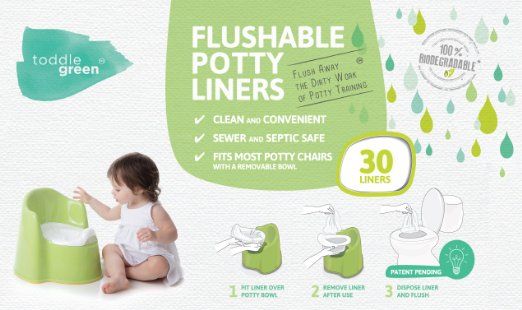
These signs include:
- establishment of a more or less stable bowel habit
- the ability to keep diapers dry for more than 2 hours
- knowledge of body parts and names of garments
- knowledge or understanding of the words "pee" and "poop"
- demonstration of negative emotions from being in soiled diapers
- desire to dress and undress independently
- the desire to imitate adults
- interest in the toilet room and the processes taking place there
And, finally, the most reliable sign: the ability to communicate the word “I want” to parents in any way — with a word, facial expressions, gestures. And not because it will be easier for mom and she will have time to put the child on the pot - this indicates that the baby has learned to communicate!
Up
10 Rules for Successful Potty Training
Is your baby about 18 months old? Did you notice any of the above signs of readiness in his behavior? So, you can start mastering a new complex science. Let's get started.
1. In addition to the readiness of the child, there must also be the readiness of adults. Obviously, at the stage of transition from a diaper to a potty, the time spent on direct communication with the baby increases markedly. It is impossible to develop toilet skills only on Sundays or only on those days when an official visit from the grandmother is expected.
2. A child, like any adult, is prone to mood swings. Early toilet training is best done when all family members are healthy and cheerful.
3. Buy a comfortable and ... warm pot - a cold seat can ruin your relationship with the potty for a long time. The seat should repeat the anatomical curves, it is desirable to have a comfortable back (such pots are called physiological). First of all, wash the pot and put it in the room with the crumbs so that it becomes a familiar item for him.
4. Getting to know the potty. We offer it to the child when the probability of a "process" is maximum - after sleep, after eating, when he
shows by his behavior that it is time for him.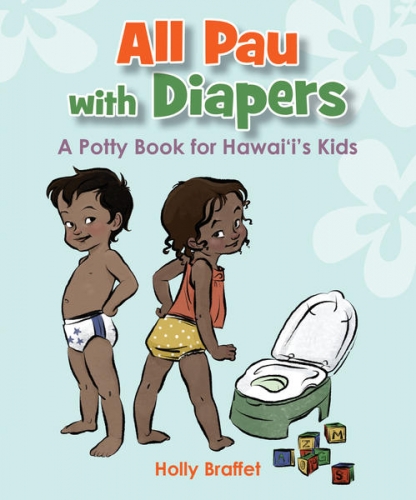
5. In case of success - very, very praise. In case of failure, we do our best not to be upset, and if we are upset, we do not show grief.
6. We fix attention not only on the potty itself, but also on the actions immediately preceding communication with the potty and parting with it: how to get the potty, how to open it, how to take off the panties, how to put on the panties, how and where to pour the contents from the pot how to wash the pot, how to close the pot and put it back in its place. The implementation of all of the above easily turns into an interesting game. It is wonderful if, after each successful action, parents do not skimp on praise - the whole process in this case is accompanied by positive emotions, and this is perhaps the main thing at the transitional stage.
7. Gradually we organize meetings with the potty not only when it is time for the child, but when the daily routine requires it. For example, without fail we sit down before going to bed, before a walk.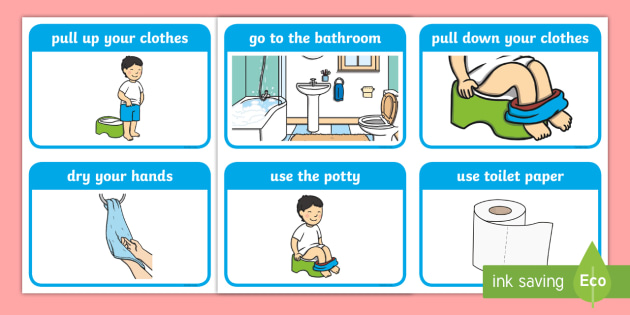
8. You shouldn't part with diapers completely and irrevocably. They are quite useful for traveling in transport, at night, for a walk in the cool season, at first and during daytime sleep. But every time when we woke up dry and quickly sat down on the potty, we pay attention to what good fellows we are, and in confirmation of this obvious fact, we demonstrate a dry diaper.
9. It is important that the pot is perceived not as a toy, but as an object of a very specific purpose. And in this regard, you should not encourage just playing with the potty. “This is a chair. They sit on it" - and, by analogy, - "This is a pot, they pee and poop on it."
10. It doesn't matter: a potty or a toilet (assuming a special child seat). Here's how you feel more comfortable. Considering that, especially at first, the process can be delayed, the potty is more convenient, since it is more pleasant to communicate in a room than in a cramped toilet space. Combining a potty with a toilet is a perfectly acceptable option, especially for boys. A special stool in the toilet, and peeing from it is just a pleasure and a conscious introduction to the world of adults. And if dad finds time to show how it's done...
A special stool in the toilet, and peeing from it is just a pleasure and a conscious introduction to the world of adults. And if dad finds time to show how it's done...
Up
“Baby refuses potty. How to be?
“We are already one year old. Our Anyuta can sit on the potty for a very long time, play, look at books, but she does not do what is necessary. How can we be? Maria
Don't worry about it. Your daughter is still too young to be potty trained. It is possible to start accustoming a child only when his body is physiologically ready for this - that is, approximately at the age of 18 months. Only by this age does his nervous system form and he begins to realize that he wants to go to the toilet. And now, when your daughter is 1 year old and she is starting to walk, it is very important to help her develop balance and strengthen her back muscles - exercises on a gymnastic ball would be very suitable for this (swaying a baby lying down).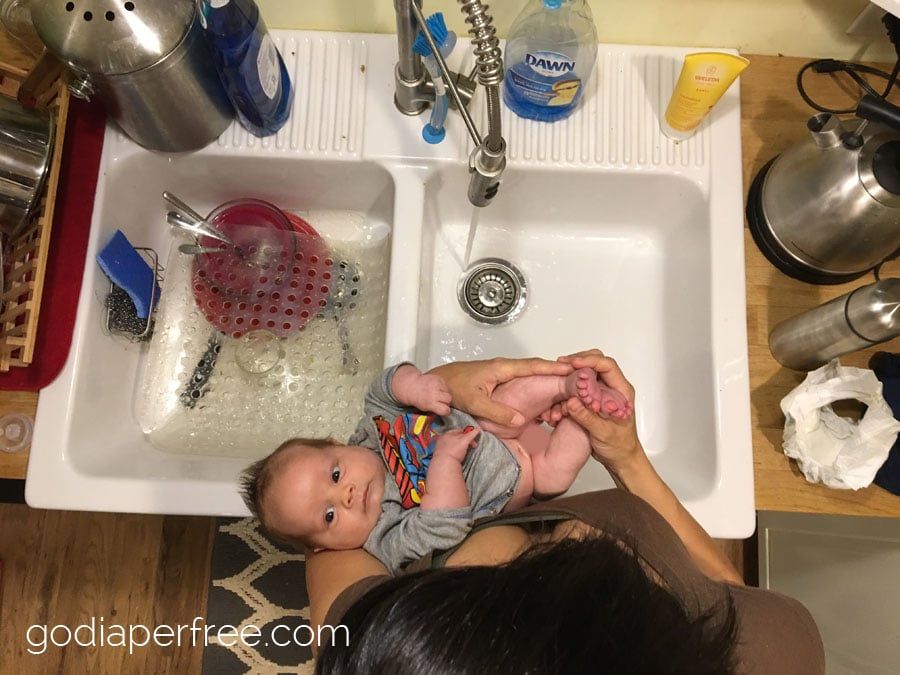 0005
0005
with your back or belly on a ball) or stepping over obstacles (over toys on the floor).
“We started potty training our baby about 3 weeks ago, he seemed to understand everything right away and did everything right, and then he began to refuse, and now he doesn’t even want to come close to him. We are 1.5 years old. Irina
This happens often, and there is nothing to worry about. Try to remember, after which the child began to refuse the potty. Maybe something scared him, or the pot was cold. Pay attention to the situation in the family, think about what has changed in the life of the baby and is he experiencing stress? And if you understand the reason, try to eliminate it. Never force him to sit on the potty. It is best to suspend the learning process for a few weeks and surround the child with attention and affection. Usually, after such a respite, children are ready to reacquaint themselves with the potty.
“Our Katyusha, at 1 year and 7 months old, does not use the potty.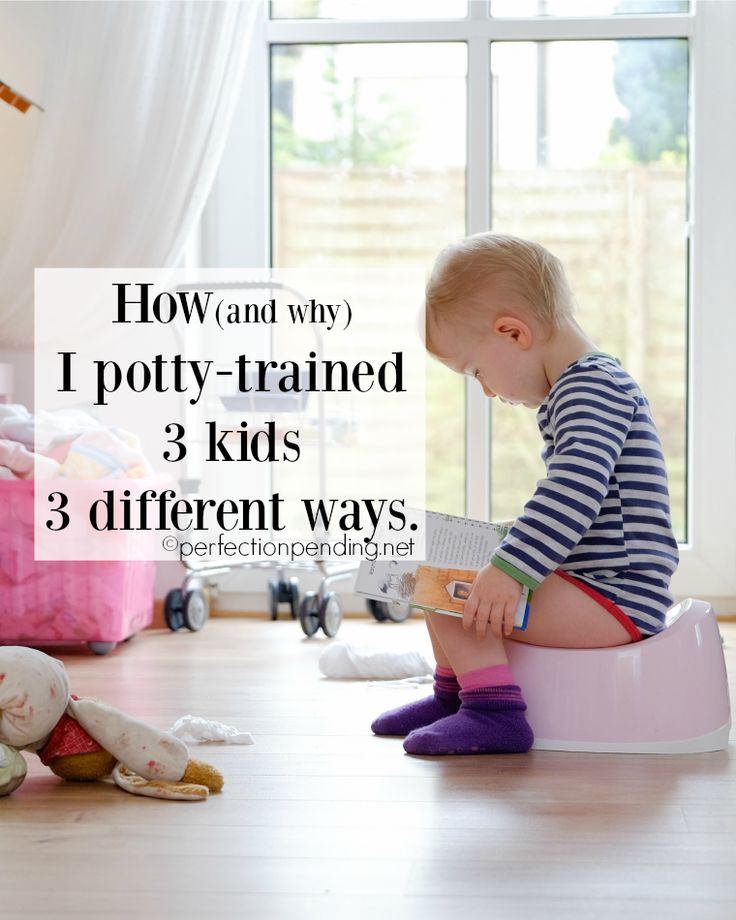 But she is very interested in everything that happens in the bathroom. When one of us goes there, every time she tries to break in and see what we are doing there. Is this normal? Daria
But she is very interested in everything that happens in the bathroom. When one of us goes there, every time she tries to break in and see what we are doing there. Is this normal? Daria
Don't worry! This is absolutely normal, moreover, this interest of your daughter indicates her readiness for potty training. If she is now ignoring the learning process, take a close look at my rules for successful potty training and make sure
You are doing everything right. And if a mistake was made somewhere and the pot now causes negative emotions in the child, stop and start learning again. Take advantage of her curiosity about adult behavior. It is known that kids are very fond of imitating adults. Buy your daughter a baby toilet seat and show her how to use the toilet. After that, most likely she herself will want to act like an adult and do the same.
Up
6 most common misconceptions
1. “It seems to me that the sooner I start teaching the baby to use the potty, the sooner he will learn to do it. Is it so?"
You, like all parents, want only the best for your child and try to develop all his abilities as early as possible. But in such a matter as potty training, you should not rush. The earlier you start, the longer and more difficult this process will be for the child. After all, he will be able to control his bladder and intestines only when his body is sufficiently developed - an average of 18 months. And if you start learning at the right age, then the child will learn much faster and easier and will be able to be proud of his achievement. And you will be proud of it!
2. “Is it true that if a baby wears disposable diapers all the time in which he does not feel that he is wet, then it is more difficult to teach him to use the potty?”
No matter what diapers your baby wears or if he wears them at all, he will learn to use the potty when his body is ready. In support of this, there are the results of studies that compared the behavior of two groups of children - in the first group, babies wore traditional gauze diapers from birth, and in the second - disposable diapers. In both groups, the age at which the babies stopped completely needing diapers was exactly the same - an average of 27 months (E. Takanashi, 1988, Japan). Therefore, it is safe to say that the use of disposable dry surface diapers does not affect the ability of babies to learn to use the potty and the age when they can do it.
3. "I'm afraid to wear diapers on my 3-month-old son, because I heard that they can lead to infertility due to the greenhouse effect"
First, the reproductive system in boys begins to develop only at the age of 7-9 years. At the age of 7, spermatozoa precursor cells appear, and the spermatozoa themselves can be detected not earlier than at 10 years old, but as a rule, much later. From this it is clear that diapers cannot affect the quality of sperm in any way - boys at this age do not have it in principle. There are also a number of studies that confirm that disposable diapers do not create a greenhouse effect - the temperature under the diaper is practically the same as the skin temperature in ordinary diapers, and the humidity level under the diaper is much lower than when using diapers. Therefore, to sum up: disposable diapers and boys are compatible.
4. “My daughter is 1 year old. I know it’s too early to potty train her, but I’m very worried that we won’t have time to learn before kindergarten.”
No matter what age you start potty training your child, there is no guarantee that she will learn to do it before kindergarten. After all, all children are potty trained at about the same time. Therefore, if you start teaching at an early age, this will not help speed up the process, but on the contrary, the training will be delayed - the child will not understand what they want from him, she will be upset because of this, and you too. And if you start when the child's body is ready for this, then you and your baby will achieve success much faster and easier, and the child will already understand that this is his achievement and will be proud of it.
5. “Many of my friends in the yard say that their babies go to the potty at the age of 9, 8, and even at 6 months. My daughter is 1 year old, I tried to teach her, but nothing comes of it. Maybe I'm doing something wrong? Why can't my child learn as quickly as other children?
My daughter is 1 year old, I tried to teach her, but nothing comes of it. Maybe I'm doing something wrong? Why can't my child learn as quickly as other children?
Tatyana, I understand that you, like all other parents, compare your child with other people's children and try to prove that yours is no worse. I want to reassure you - at such an early age, children are simply physically unable to consciously go to the potty. Their nervous system is not yet sufficiently developed to give signals about a full bladder or intestines. Until the age of 1.5, they go to the toilet without realizing it or noticing it. And you can not influence it in any way and accelerate the development of the child.
Your girlfriends most likely keep silent about the fact that their babies sit on the potty and listen to endless “pee-pee” and “ah-ah” for 30-40 minutes, and by this time the child’s even empty bladder is full, and they pissing in a pot. And this leads to the development of a conditioned reflex to the mother's requests to pee or poop.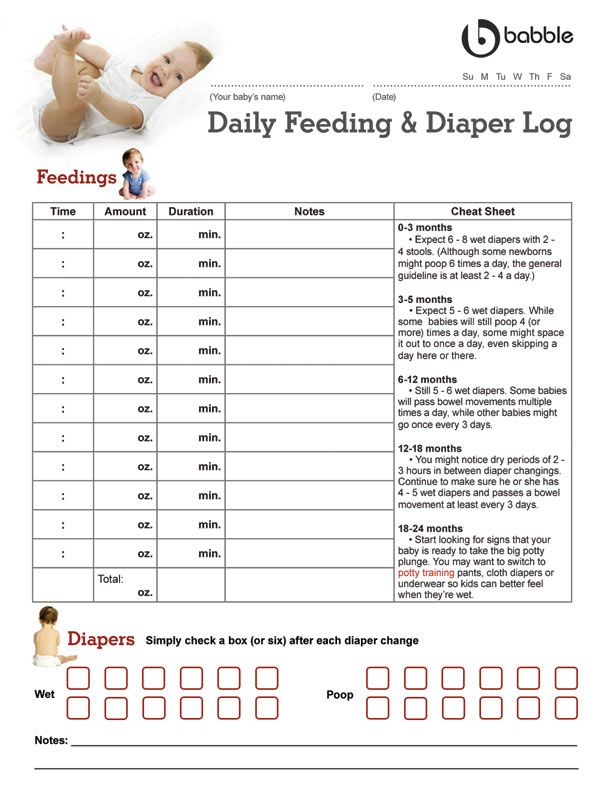 But in the second year of life, this reflex suddenly disappears for the parents. And only then the child begins to consciously learn to go to the potty.
But in the second year of life, this reflex suddenly disappears for the parents. And only then the child begins to consciously learn to go to the potty.
So remember that everything, especially potty stuff, has its time.
6. “My mother thinks that using diapers is better for our baby's health than diapers. Is it true?"
Such prejudices of the older generation towards diapers are due to the fact that earlier these hygiene products were simply not available. And today, grandmothers, who are often suspicious of everything new, find it difficult to appreciate the merits of diapers. Although, if we compare diapers with diapers, then the advantages of the first are obvious - the wet surface of the diapers causes irritation and skin diseases, and in cold weather, the duration of the baby's walks in diapers is significantly reduced. The Union of Pediatricians of Russia conducted clinical studies, and the results showed that the moisture content of the baby's skin in diapers is much lower than in diapers. Research has also shown that disposable diapers help soothe irritation on baby's skin, even if the baby has diaper dermatitis, which diapers can't do. Therefore, SPR doctors recommend that mothers regularly use disposable diapers from the very birth of their baby.
Research has also shown that disposable diapers help soothe irritation on baby's skin, even if the baby has diaper dermatitis, which diapers can't do. Therefore, SPR doctors recommend that mothers regularly use disposable diapers from the very birth of their baby.
Up
How to potty train a child?
There comes a time in every child's life when they need to learn how to use the potty. This is a tricky and tricky business. It requires understanding from children, and skill, ingenuity and angelic patience from parents. Today on the Internet on this topic you can find a thousand tips. And you can go along the shortest and most peaceful path, which will be prompted by an experienced pediatrician - neonatologist of the medical clinic "Children's Doctor" Grebneva Tatyana Sergeevna.
When to start?
Awareness of the pot itself in a child comes only to 1.5-2 years. If before this age the baby does not show any interest in this subject, is afraid and does not approach the pot - this is quite normal.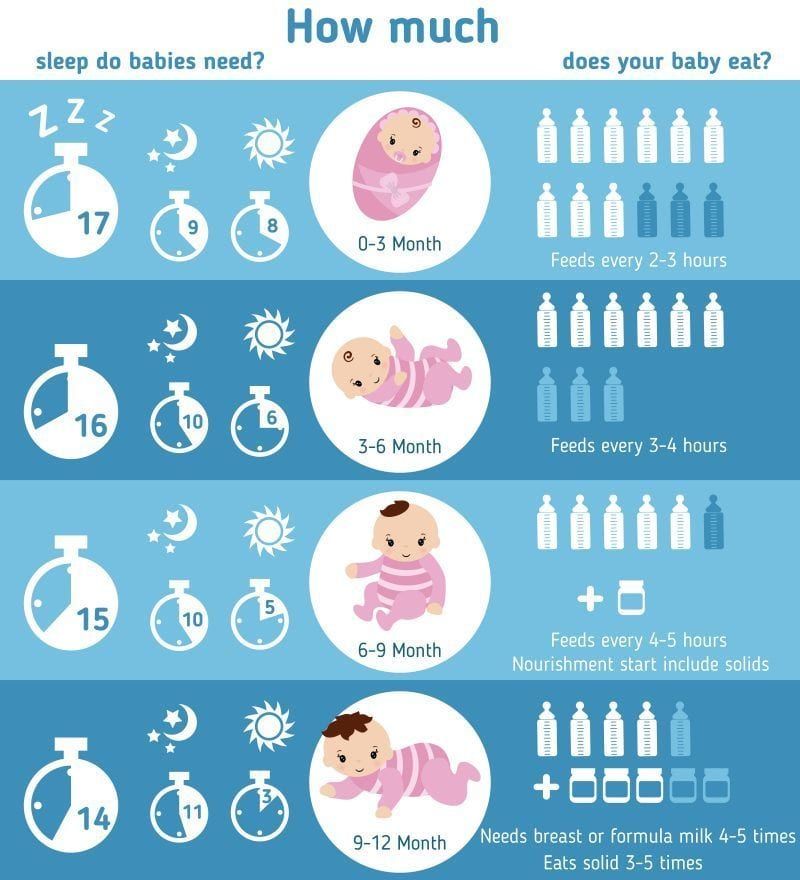 However, it is best to “acquaint” the baby with him gradually and in advance, since all processes in children take place at the level of reflexes. Tell, explain to the child what the potty is for and how to use it. Offer to sit on it ... At the same time, do not force it to be done by force, in any case do not scream and do not cause fear in the crumbs.
However, it is best to “acquaint” the baby with him gradually and in advance, since all processes in children take place at the level of reflexes. Tell, explain to the child what the potty is for and how to use it. Offer to sit on it ... At the same time, do not force it to be done by force, in any case do not scream and do not cause fear in the crumbs.
How to teach?
The question is not only medical, but also pedagogical. There are many ways to help potty train your child. And each parent chooses the most convenient for himself. But the easiest way to navigate the daily routine. By the age of eight or nine months, children develop a certain regimen, including feeding regimens and regimens for how they go to the toilet. Normally, the baby should urinate every 2-2.5 hours. Based on this, a schedule for systematic planting on a pot is formed.
What to do if the baby resists?
If the crumbs have fear and active denial of the pot, you do not need to force him and cause even greater dislike for him.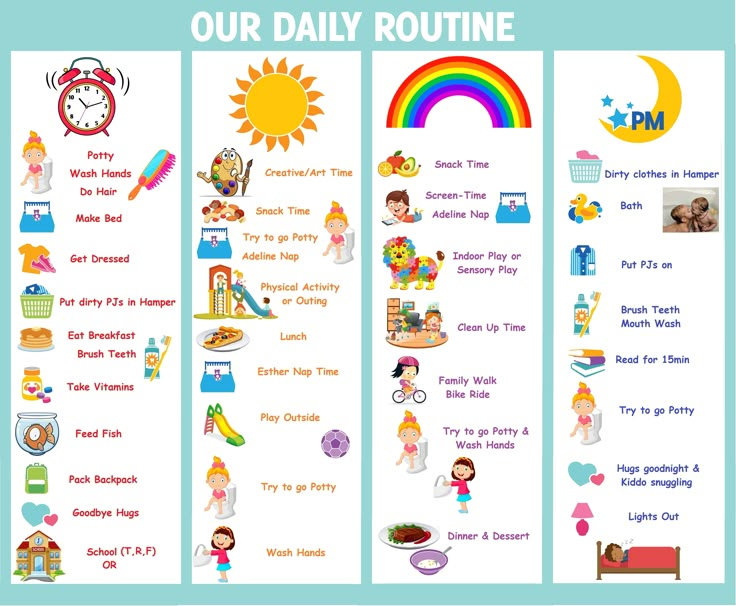 Stock up on patience! Calmly explain to the child that it is not scary and does not hurt. You may even need to remove the potty for a few days to calm down the baby, and then start training again. If this does not help, try changing the pot to another - in color and shape. It often works.
Stock up on patience! Calmly explain to the child that it is not scary and does not hurt. You may even need to remove the potty for a few days to calm down the baby, and then start training again. If this does not help, try changing the pot to another - in color and shape. It often works.
Should I give up diapers?
Someone believes that prolonged and active use of diapers makes it difficult to get used to the potty, and someone believes that there is nothing to worry about. In fact, the truth lies somewhere in the middle. Up to 1.5-2 years, there is no point in completely abandoning diapers. But you shouldn’t wear them constantly, as diapers dull sensations - the child does not feel that he is wet and that he is uncomfortable.
What can not be done?
No need to sit on the potty for a long time. This can lead to surgical problems such as rectal prolapse and other problems.
Do not buy musical pots and turn the adaptation process into a game! Yes, such gadgets attract the attention of kids, but this is only one side of the coin.